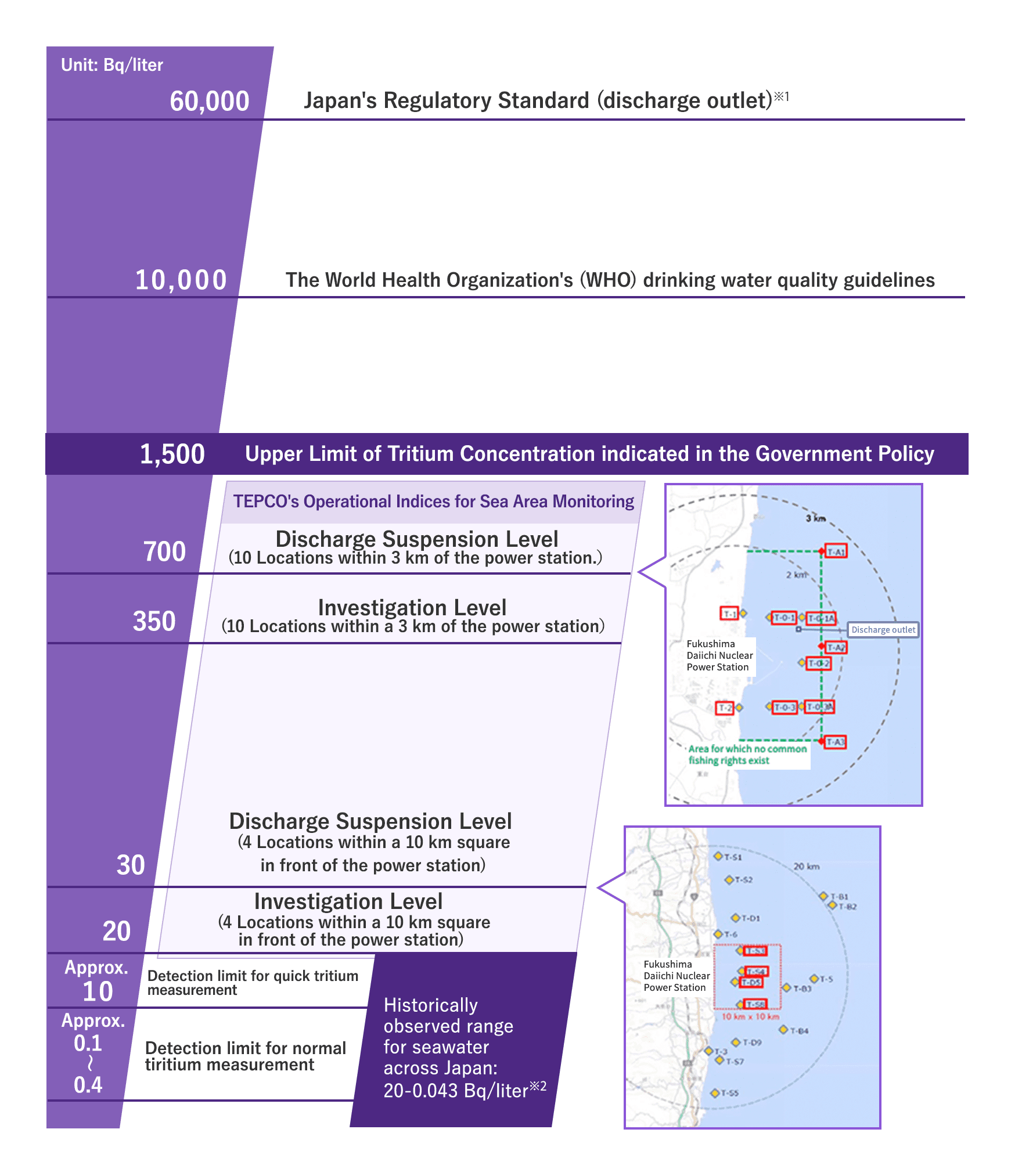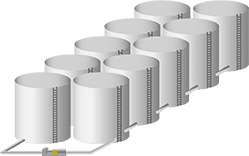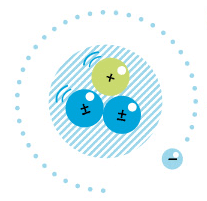FY2023 Sea Area Monitoring Results
(concentrations of tritium in seawater)
Tritium concentrations obtained sea area monitoring within a 3 km of the power station are well below our operational index (discharge suspension level: 700 Bq/L).
[Click here for details of operational indices]
| Results of quick tritium measurement* | ||
|---|---|---|
| Round | Within a 3 km of the power station | Within a 10 km square in front of the power station |
| 1st | Max. 10 Bq/liter | Below the detection limit |
| 2nd | Max. 22 Bq/liter | Below the detection limit |
| 3rd | Max. 11 Bq/liter | Below the detection limit |
| 4th | Max. 16 Bq/liter | Below the detection limit |
*Measurement performed with a detection limit of approx. 10 Bq/liter in order to obtain the results quickly.
Comparison of concentration of tritium in seawater

*1: This standard has been stipulated based on the calculation that if a person were to drink approximately 2 L of the water coming out of the discharge outlet of a nuclear facility every day for one year, his/her exposure would be 1 mSv.
*2: Source: Environmental Radioactivity and Radiation in Japan (Period: April 2019 to March 2022)
FY 2023 Discharge History
(as of Mar. 17, 2024)
Annual accumulated ALPS treated water discharge volume
00,000 ㎥
Total accumulated ALPS treated water
discharge volume since the commencement
of discharge in August 24, 2023:
00,000,000

Annual accumulated tritium discharge volume
Approx. 0 TBq
Total accumulated tritium discharge volume
since the commencement of discharge
in August 24, 2023:
Approx. 00 TBq
Annual discharge limit of tritium:
22 TBq

Discharge history for each discharge
| Analysis results of ALPS treated water prior to dilution | ALPS treated water discharge history | ||||||
|---|---|---|---|---|---|---|---|
| Round | Analysis date at the measurement/ confirmation facility*1 |
Tritium concentration |
The sum of the ratios of the concentration of each radionucide to the regulatory concentration, excluding tritium |
Discharge period | Tritium concentrations after dilution*2 | Amount of ALPS treated water | Amount of tritium |
| 1st | Jun. 22, 2023 | 14×104 Bq/liter |
0.28
<
Regulatory standards
1 |
Aug. 24, 2023 ~ Sep. 11, 2023 |
Max. 220 Bq/liter | 7,788 ㎥ | Approx. 1.1 TBq |
| 2nd | Sep. 21, 2023 | 14×104 Bq/liter |
0.25
<
Regulatory standards
1 |
Oct. 5, 2023 ~ Oct. 23, 2023 |
Max. 189 Bq/liter | 7,810 ㎥ | Approx. 1.1 TBq |
| 3rd | Oct. 19, 2023 | 13×104 Bq/liter |
0.25
<
Regulatory standards
1 |
Nov. 2, 2023 ~ Nov. 20, 2023 |
Max. 200 Bq/liter | 7,753 ㎥ | Approx. 1.0 TBq |
| 4th | Feb. 26, 2024 | 17×104 Bq/liter |
0.34
<
Regulatory standards
1 |
Feb. 28, 2024 ~ Mar. 17, 2024 |
Max. 254 Bq/liter | 7,794 ㎥ | Approx. 1.3 TBq |
| num | mm. dd 20yy |
n万 Bq/liter |
0.55
<
Regulatory standards
1 |
mm. 2, 2023 ~ mm. 2, 2023 |
Max. n Bq/liter | 0㎥ | Approx. 0 T Bq |
*1 Click on the date of analysis to see the pre-discharge analysis results of ALPS treated water in the Measurement /Confirmation tanks.
*2 During the discharge period, the tritium concentration in samples taken from seawater pipes is analyzed daily. Each result is given as "○○±△△Bq/L" taking into account the uncertainty (accuracy of the analysis data), and the value where "○○+△△Bq/L" reaches the maximum among the results during the period is given as "Maximum ▲▲Bq/L".
FY 2023 Discharge Plan
ALPS treated water is discharged starting from which stored in the measurement/confirmation facility.
| Round | Discharge period | Amount of ALPS treated water |
Tritium concentration*1 | Amount of tritium |
|---|---|---|---|---|
| 1st | Aug. 2023 | Approx. 7,800 ㎥ | 14×104 Bq/liter | Approx. 1.1 TBq |
| 2nd | Oct. 2023 | Approx. 7,800 ㎥ | 14×104 Bq/liter | Approx. 1.1 TBq |
| 3rd | Nov. 2023 | Approx. 7,800 ㎥ | 13×104 Bq/liter | Approx. 1.0 TBq |
| 4th | Feb. 2024 | Approx. 7,800 ㎥ | 17×104~21×104 Bq/liter | Approx. 1.4 TBq*2 |
*1 Tritium concentrations will be less than 1,500 Bq/liter by dilution more than 700 times with seawater
*2 Average value of the tank group that was assessed taking into account the radioactive decay until July 1, 2023


